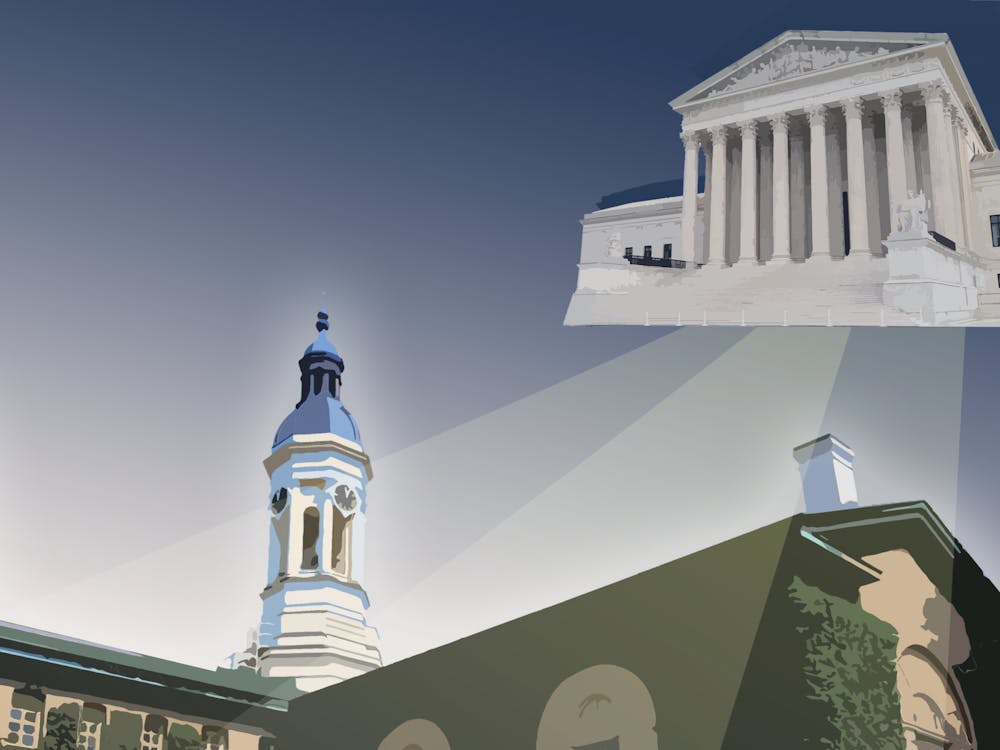A major Supreme Court decision with implications for Princeton admissions is looming.
The Supreme Court is set to rule on two challenges to affirmative action by the end of this month, with some expecting decisions as soon as this week.
Opinions are usually released online on Thursdays at 10 a.m., but the Court still has 18 decisions left on its docket, meaning we can expect it to release decisions on more days in the coming two weeks based on previous years’ schedules. Just this morning, the Court added this coming Friday as a day on which it will announce decisions.
Though the Court tends to release decisions on all of its cases by the end of June, when the summer recess typically starts, it is possible that we may be looking at a longer timeline. In the past, decisions have come in early July. Court watchers have noted that the pace at which decisions are being released is particularly slow this term. By the end of April, this Court had decided fewer cases than any other bench at any time in the last 100 years.
Particularly contentious cases often take the longest to decide. This is because a majority of the justices have to agree to the language of the opinion, written by the most senior justice in the majority group, before it is publicly released. Therefore, the author of the opinion must be mindful of the opinions and arguments of the other justices in the majority — disagreements may cause justices to switch votes.
The two affirmative action cases, Students for Fair Admissions (SFAA) v. President and Fellows of Harvard College and SFAA v. University of North Carolina, were both filed by Edward Blum, a conservative activist and SFFA founder whose history of bringing legal challenges to the consideration of race in college admissions includes Fisher v. University of Texas in 2008.
As in the most recent cases, the legal appeal in Fisher was that affirmative action constituted racial bias, thereby violating the Constitution’s Fourteenth Amendment. In the Harvard case, SFFA goes further to allege that admissions officers at the school discriminate against Asian American applicants, using subjective standards not imposed on Black, white, or Hispanic students.
Though the Court threw out Fisher’s challenge in 2016, it has swung to the right in the past 9 years, bolstered by President Trump’s appointment of three conservative justices. Based on the current justices’s history on the issue, their questions during oral arguments, and the fact that Justice Ketanji Brown Jackson, one of three liberals on the court, has recused herself from the Harvard case due to her ties to the school, many believe that consideration of race in admissions will, at the very least, be curtailed with the two newest cases.
Such a ruling will have a significant impact on the racial makeup of incoming classes at Princeton and colleges across the country. Princeton has considered race in admissions since 1963.
A study done by Harvard found that enrollment of Black students at Harvard would decrease by more than half, that of Hispanic students would decrease by close to a third, and that of Asian American students would increase by nearly 30 percent if consideration of race in admissions was barred.
Colleges nationwide have been bracing for whatever comes. For instance, Yale, M.I.T., and Brown are working with 13 other selective colleges to better reach out to students living in rural areas with schools that may not have Advanced Placement courses.
Other schools are weighing long standing policies, such as legacy admissions or reliance on standardized testing. Studies have found that giving preference to students from disadvantaged socioeconomic backgrounds on its own would not be sufficient to maintain the racial diversity permitted by affirmative action. Such a policy would have to be adopted in conjunction with discontinuation of legacy admissions and standardized testing and increasing the total applicant pool.

In an interview with the Philadelphia Inquirer earlier this year, University president Christopher L. Eisgruber ’83 appeared reluctant to the idea of abandoning preference to legacy students and use of standardized testing. The University has not given any indication as to how admissions will change with the expected decision, though Eisgruber told the Philadelphia inquirer that “We are going to continue to pursue within the limit of the law the diversity that is essential to the mission of this University and the aspirations of this country.”
He also wrestled with certain questions that a decision to overhaul affirmative action might bring. For instance, if a student mentions race on an application, is a college admissions office going to be legally barred from considering it?
“We will do our best to comply, but I sure hope the Supreme Court doesn’t ask us to, in the name of equality, single out this one characteristic that is so important to most of our experiences and say ‘Hey, you’re going to have to pretend that doesn’t exist,’” he said.
Sandeep Mangat is a head News editor at the ‘Prince.’
Please send corrections to corrections[at]dailyprincetonian.com.








